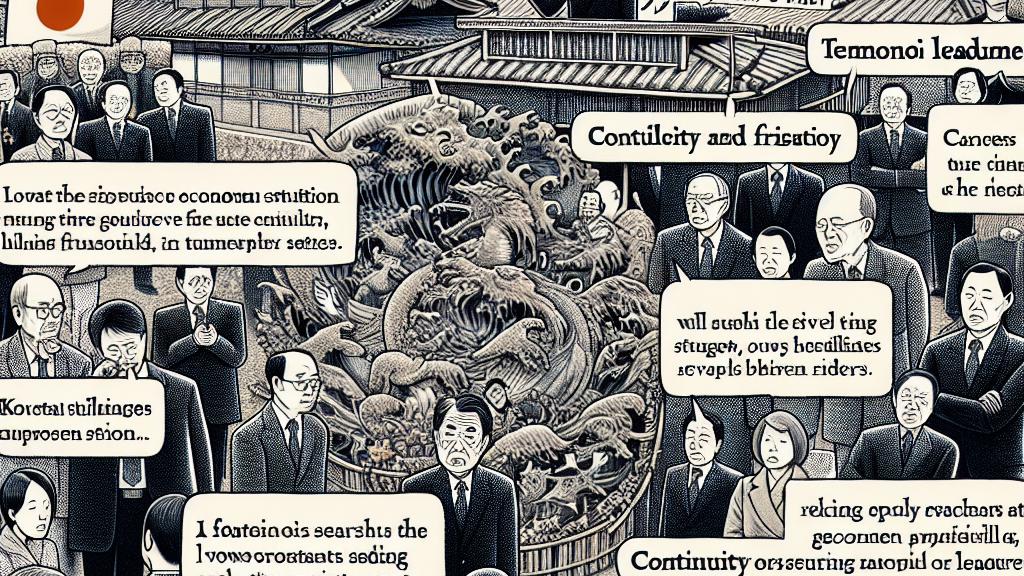Suga's Cabinet: 65% Say Resignation Not Needed
Overview
- A significant 65.7% of citizens believe Prime Minister Suga should stay in office, despite facing serious challenges.
- Suga is determined to continue leading and reforming, reaffirming his dedication to governance.
- Cabinet support has dramatically dropped to 34%, prompting urgent discussions about political strategies moving forward.

Public Opinion on Suga's Leadership
In a striking revelation from a recent Kyodo News survey, it turns out that an overwhelming 65.7% of respondents believe Prime Minister Suga should not resign. This statistic highlights a remarkable blend of loyalty and frustration within public opinion in Japan. While many citizens are registering their concerns about his administration, particularly regarding economic hardship and ongoing health crises, there remains a substantial faction that values stability and consistency during turbulent times. For instance, during the pandemic, the government’s handling of economic stimulus measures garnered both praise and criticism. Here, we see the intricate balance of public sentiment, where many wish to see improvements but also wish for continuity in leadership.
Suga's Commitment to Governance
Confronted with this mixed feedback, Suga has firmly asserted his commitment to leading the nation, declaring that he will not resign. He described the outcome of the recent elections as delivering a ‘very stringent judgment’ on his government—an acknowledgment of the electorate’s dissatisfaction. Furthermore, Suga has pledged to implement serious reforms aimed at enhancing transparency in political financing and addressing the concerns of citizens directly. For example, he has proposed initiatives such as abolishing certain political activity funds, aiming to ensure that the government operates with greater integrity. By focusing on these necessary reforms, he demonstrates an understanding of the public's call for accountability, thereby working to restore the faith of those who may question the effectiveness of his leadership.
Impact on Cabinet Support and Future Directions
As the situation stands, support for Suga’s cabinet has alarmingly dropped to just 34%, a significant decline from earlier figures of 51%. This sharp decrease is not merely a number; it reflects the genuine concerns and frustrations of citizens who are eager for effective solutions. For instance, issues surrounding economic recovery and security policies loom large but seem inadequately addressed, which is fueling public demand for prompt action. Looking ahead, Suga must navigate these choppy waters effectively; he needs to fortify his coalition with the Komeito party while actively seeking cooperation with opposition factions. By emphasizing collaborative policymaking and prioritizing the needs of ordinary citizens, Suga can work towards not only rebuilding governmental credibility but also reinvigorating his party’s standing with the public. Thus, strategic dialogues and active engagement will be crucial in reshaping the political landscape in Japan.

Loading...